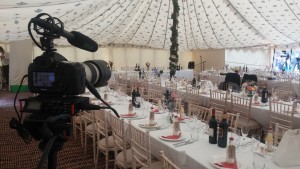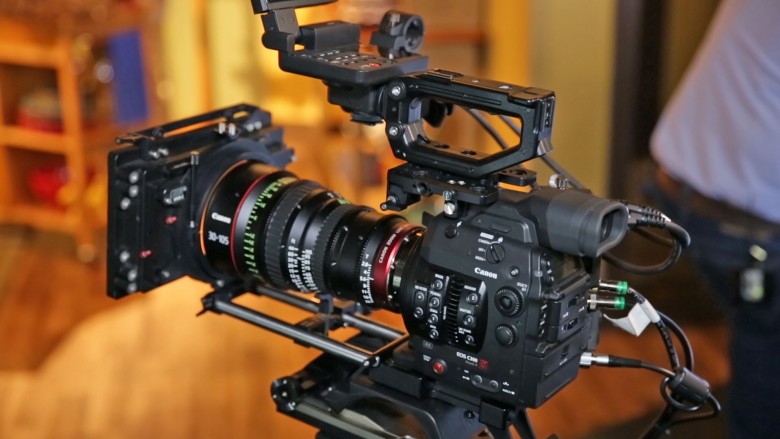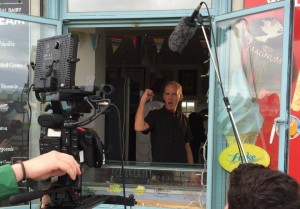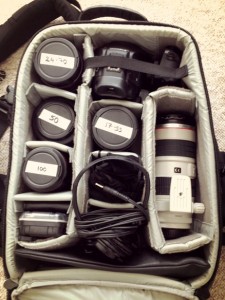So you shoot video…but can you do stills?
Many times I have been on a shoot and the client has asked if I can do photos too. Now I imagine this is a popular question for the majority of other videographers too but for me it has always been a bit difficult to answer. I’ll explain why.
Whilst it could appear that a digital professional who works in one visual medium would probably be competent in a similar one, the truth is that video and stills photography aren’t always as close to each other as many may think. In theory, anyone can take our their phone and take a picture and shoot some video with relatively no skill at all but most businesses wouldn’t choose this option if they wanted high quality content. Assuming that your photos and videos could be done by the same person is also not always the best thing if you want the highest quality from either, however it’s easy to see why those outside of the creative industries might pair the two up.
The reality is that the skills and experience required for the role of videographer and photographer are completely different, despite an overlap of certain techniques and equipment.
Hold on! There are some similarities..
Technically we – the video guys – can do your stills. The single biggest reason why is that we actually use DSLR cameras to shoot our videos! Using dedicated stills cameras for video may seem absurd but one of the main benefits can be that we have the ability get high quality images at excellent value. The Sony A7Sii and Panasonic GH4 are both good examples of DSLRs that offer 4K video capability at an affordable price and as 4K online video is still in it s infancy it’s not economical for the majority of us to invest in top of the range 4K video or cinema cameras so these types of DSLRs are sensible purchases. Adding to this, many DSLRs have large sensors meaning that they are exceptional in low light which is great for event videos and can offer cinematic bokeh (background blur) which can make videos look stunning. DSLRs are also perfect for shooting high quality timelapses which can add another interesting element to video content. With these considerations it makes absolute sense that online content producers have DSLRs at their disposal.
s infancy it’s not economical for the majority of us to invest in top of the range 4K video or cinema cameras so these types of DSLRs are sensible purchases. Adding to this, many DSLRs have large sensors meaning that they are exceptional in low light which is great for event videos and can offer cinematic bokeh (background blur) which can make videos look stunning. DSLRs are also perfect for shooting high quality timelapses which can add another interesting element to video content. With these considerations it makes absolute sense that online content producers have DSLRs at their disposal.
Shot composition, framing and an understanding of the technology behind the respective crafts are essential regardless of whether someone shoots video, stills or both. Colour temperature, exposure and shutter speed (or angle) are further concepts that must be grasped by either professional.
A whole lotta’ differences..
Apart from the obvious one that videos are moving and stills are not, there are actually many other less obvious differences between the two which maybe mean no, us videographers can’t (or choose not to) do your stills.
It boils down to the key ingredients for each craft which are in turn, completely different. Video needs motion, whereas photography is all about light (well actually, premium video is about light, which I talked about in an earlier article but the absolute bare bones of video production is motion). Successful business videos engage with an audience, encouraging them to react (i.e. with a like, share or comment on social media) and to help with this motion is essential to keeping their attention. Even if the subject isn’t moving a cut to another angle can be enough to create at least an element of movement. Sound is the other key skill in video production that often gets overlooked but it really is an art in itself.
Photography however is all about capturing perfect moments in the best light, whether that be using natural or artificial sources or a combination of the two. Capturing a single moment that’s sharp, interesting and exposed well is an entirely different art to shooting video and for a picture to paint a thousand words, it has to be something special. Landscape photography is a good example of how difficult it can be; to get the perfect image photographers may have to wait for hours to be in the right place at the right time in order to capture the best natural light.
The post production process can be drastically different too. Photographic editing often involves retouching, fine adjustment and layers upon layers of edits even just for a single image. Car photography in a studio is a good example; to make the various parts of a car look perfect all at once each part has to be lit separately and all of the images blended together in post production to only show the best bits from each setup. Whilst this can happen in video too it is much more time consuming and processor intensive as multiple layers of correction would require key framing (and bearing in mind that PAL video is made up of 25 frames per second, that’s a lot of frames to consider!) and so only suitable for the highest end projects.
“Could you take a still image from the video?”
Another question that I get asked often. Yes, this is possible, however as the majority of online content is shot in HD, not 4K, doing this means that you will have a smaller resolution image than you would have done if you had used a designated stills camera (and not in video mode). Megapixels are more important in photography than video for sure and as a result many camcorders will have a much lower pixel count, plus if there is any movement in your video taking a still frame might leave you with a subject that’s got a bit of motion blur. For some web purposes it may be fine extracting a smaller image from a video (including in a blog for instance) but if you wanted to zoom in, enlarge the image greatly or print it professionally then it wouldn’t be a suitable option.
So in practice yes, but if you want the best quality then no.
Wedding shooters: similar equipment, different style.
A good example of the differing styles of a videographer and a photographer would be at a typical wedding. The photographer will be capturing the key moments of the day but will also be herding the guests so they can set up and take memorable portraits that can be cherished forever. With only one opportunity to get these people together they are very much in the limelight during certain parts of the day. They would certainly need to be a people person!
The videographer however will be the complete opposite; rather than being noticeable and central to the day they will most likely be blending into the background so that they can go unnoticed. They would capture the day but not intervene with the order of events so that when the happy couple come to watch their video back they actually see the day from a whole new perspective. Events can be unpredictable so being able to foresee what’s coming and then be able to simultaneously capture the best audio and visuals is something that can take years of mastering.
The editing styles of each wedding shooter role differ immensely too; the photographer will spend days editing potentially hundreds of photos whereas the videographer will most likely be editing in camera, shooting as linearly as they can on the day to keep the editing time affordable and sustainable in the long term. This is especially important as data processing could take almost as much time as the editing itself due to the large file sizes involved and the process of burning the final (often hour long or more) videos onto multiple DVDs for clients.
The bottom line
Don’t get me wrong, there is absolutely no harm in offering both video and photographic services but the point of this post is that there are different skills, workflows and to some extent, even personal qualities that can be applied to each craft and more often than not the best practice is to hire the relevant specialist. On the contrary, many experienced cinematographers in film production have backgrounds in stills photography, as do many photographers venture into video production, so there is no set rule. At the end of the day it certainly can’t hurt to have an interest in both fields but knowing and being honest about where your strengths and weaknesses lie is vital when it comes to maintaining strong working relationships, regardless of the industry you work in.
So if we were to answer to the original question: “Can you do stills?”, well yes; here at FlyCreative we rely on a trusted network of talented freelancers with a range of talents to assist us in fulfilling our moving image and other digital needs. If we can’t personally meet your requirements then we’ll certainly be able to recommend you a trusted professional.











